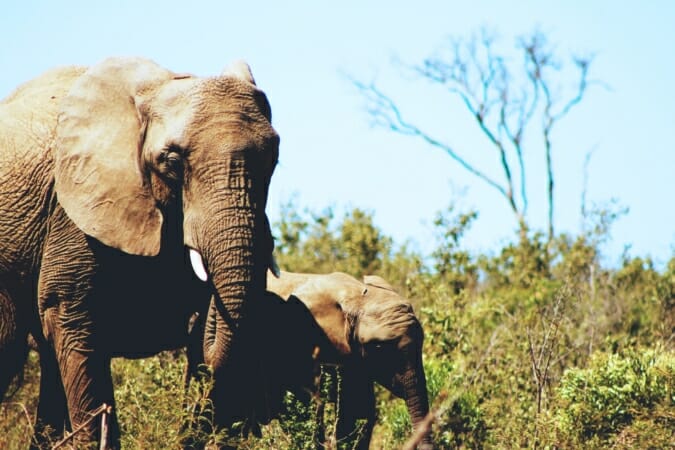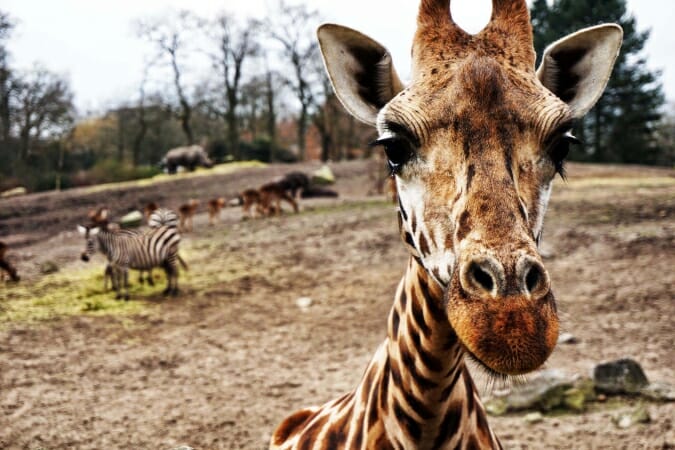Travel Industry Takes a Stand Against Wildlife Trafficking
Not long ago we put together a feature on ethical travel. It was actually the first part of our 'Gap in the Market' series, which has been running for a while now. The focus was the world of responsible travel. We took a closer look at how and why this market sector is on the up.
So it's with that in mind that today we bring you some good news from the travel industry. Three major tourism groups have announced ambitious plans in the fight against wildlife trafficking, poaching, and the sorry state of affairs by which travellers unknowingly contribute to these problems.
One of the best ways to bring an end to the underground economy of animal trafficking and poaching is to make it increasingly difficult to sell items. Ensuring tourists know when goods haven't been sourced sustainably is a good start in the fight to protect our natural world.
The Adventure Travel Trade Association (ATTA), American Society for Travel Agents (ASTA) and Cruise Lines International Association (CLIA) have announced a partnership that will help travellers recognise and avoid purchasing the illegal wildlife products decimating global populations of elephants, rhinos, tortoises and other endangered species.

Travellers need to be better informed
The partnership of associations collectively serves over 25 million travellers every year, so is in a perfect position to raise awareness of the issues at hand. Unknowingly, travellers around the world are making environmental problems worse, despite having the opposite intentions. Many are buying items on trips that are sourced in damaging and unsustainable ways, including accessories, clothing, medicine, souvenirs, live pets and even meals.
Now some of the travel industry's biggest players are getting together to distribute a 'digital toolkit' that operators can use to better educate tourists around the world. The 'Know Before You Go / Ask Before You Buy' toolkit provides travel and tourism industry leaders with resources they can use to engage travellers in the fight to stop wildlife trafficking.
“The travel and tourism industry has a unique ability to reach millions of people around the world and show them how they can be part of the solution to end wildlife trafficking,” said Zane Kerby, CEO, ASTA. “The Alliance toolkit gives industry leaders a step-by-step guide for educating travellers about the potential pitfalls they can encounter while shopping overseas. By buying informed, we can all work together to protect these treasured species for the benefit or our planet, our security, and future generations.”
“The illegal and unsustainable trade of wildlife is devastating species across the globe, from tigers, to sea turtles, to elephants,” said Jim Sano, WWF Vice President of Travel, Tourism and Conservation. “We can only stop wildlife crime if everyone plays their part. The travel and tourism industry with its unmatched global reach and influence, can make an enormous impact in helping end this scourge.”
Tourism relies on the natural world

We may not have mentioned it explicitly before, but it goes without saying that many conventional tourism sectors rely heavily on the natural world. Whether that's the beautiful beaches of the Carribean or the regular snowfall that keeps the Alps and other ski resorts open. There's also a booming industry for safari trips and wildlife tourism.
Sadly, climate change, illegal poaching and habitat loss are causing many species to suffer steep declines in population. In particular, wildlife trafficking is a huge black market industry, with links to organized crime, cartels, gangs, and corrupt governments.
The positive news is that everything points to the fact that animals and our natural world are worth more while they're alive. This gives the tourism industry a huge incentive to want to help protect them.
Education is the best way to combat every issue facing our incredible nature, from climate change to extinction. For that reason, it's in the interests of everyone working in travel to teach tourists to respect and protect wildlife and ecosystems around the world.
Travel operators will embrace 'digital toolkit' to protect wildlife
We love it when technology and travel come together.
The Alliance is about to launch a “Know Before You Go / Ask Before You Buy” digital toolkit. The kit will give travel industry leaders some handy resources to help engage tourists and raise awareness about wildlife trafficking. It was put together with help from the Alliance coalition, which includes travel companies, non-profit leaders WildAid and WWF. The toolkit includes educational pamphlets, public service announcements, and infographics.
“It is exciting to see the U.S. travel industry step up and use their deep relationships with the travelling public to raise awareness about the global wildlife trafficking crisis and give unsuspecting travellers the tools to make good buying decisions,” said David J. Hayes, Chair of the U.S. Wildlife Trafficking Alliance. “The Alliance applauds ATTA, ASTA, and CLIA for its socially responsible leadership, in concert with the non-profit and government sectors, in working to close down the illegal wildlife markets that are fueling the senseless killing of endangered species around the globe.”
Power lies in the hands of travellers

The contents of the U.S. Wildlife Trafficking Alliance's digital toolkit will be shared with travellers to ensure that when they make purchases on abroad, they’re doing so in a way that won't have a negative impact on local wildlife. It’s hoped that this tool kit will help to raise awareness of the issues and ultimately cut off the funds to those who trade in illegal goods.
“Governments and organizations around the globe are collaborating in unprecedented ways to combat wildlife trafficking. Powerful as these efforts are, the real power – and the hope for elephants, rhinos, tigers and other treasured wildlife on the brink – lies in the hands of consumers,” said Bryan Arroyo, Assistant Director of the U.S. Fish and Wildlife Service’s International Affairs Program.
“Educating travellers, so they don’t unwittingly contribute to the poaching and wildlife trafficking epidemic, is vital to ending this grave threat to our planet’s most precious legacy.”
A positive step for ecological tourism
At a time when influential people in positions of power are putting the environment at risk by casting doubt over the spectre of climate change, it's refreshing to see the travel industry take the lead in protecting the natural world. But it's not just tourism's big players that can make an impact. Startups can also have a say by encouraging responsible tourism and making sure travellers are educated and well-informed with regards to the trafficking of animal goods. That way generations to come can enjoy the natural world as much as we have been fortunate to be able to.